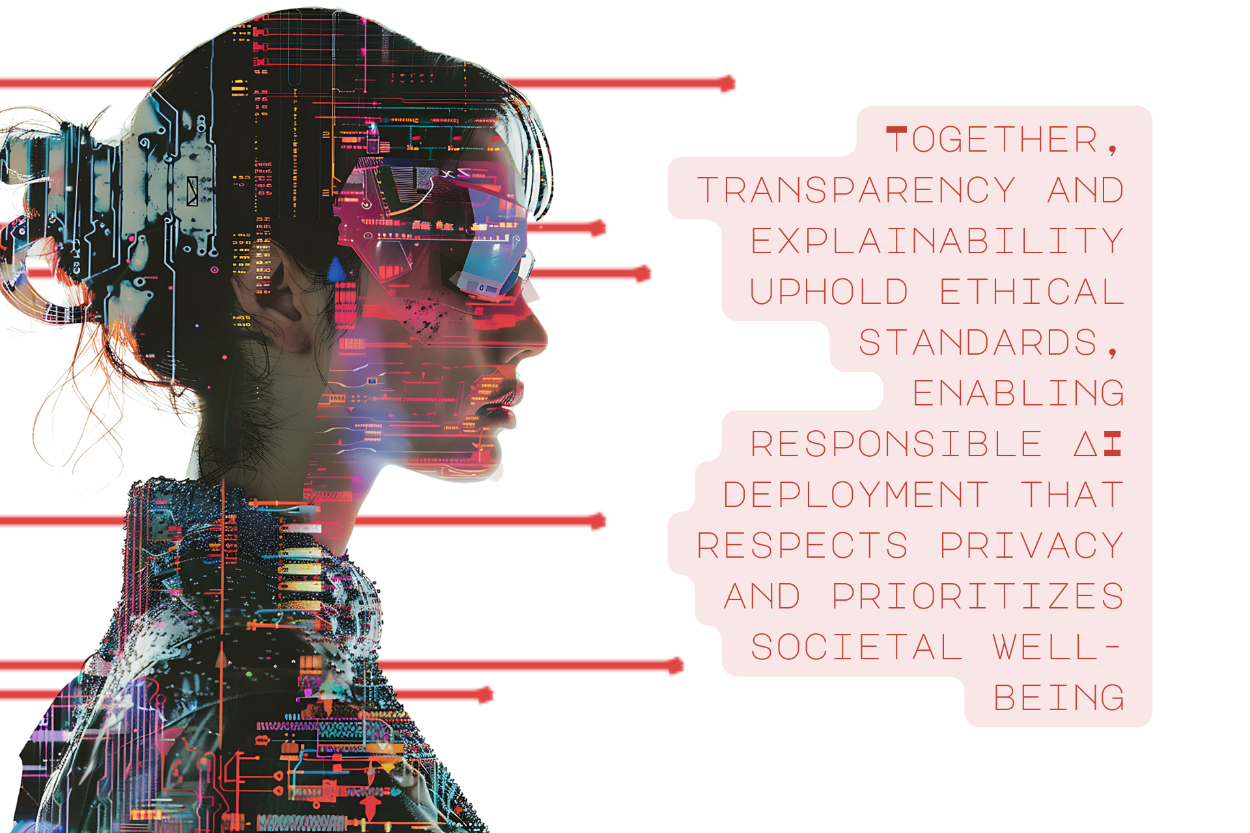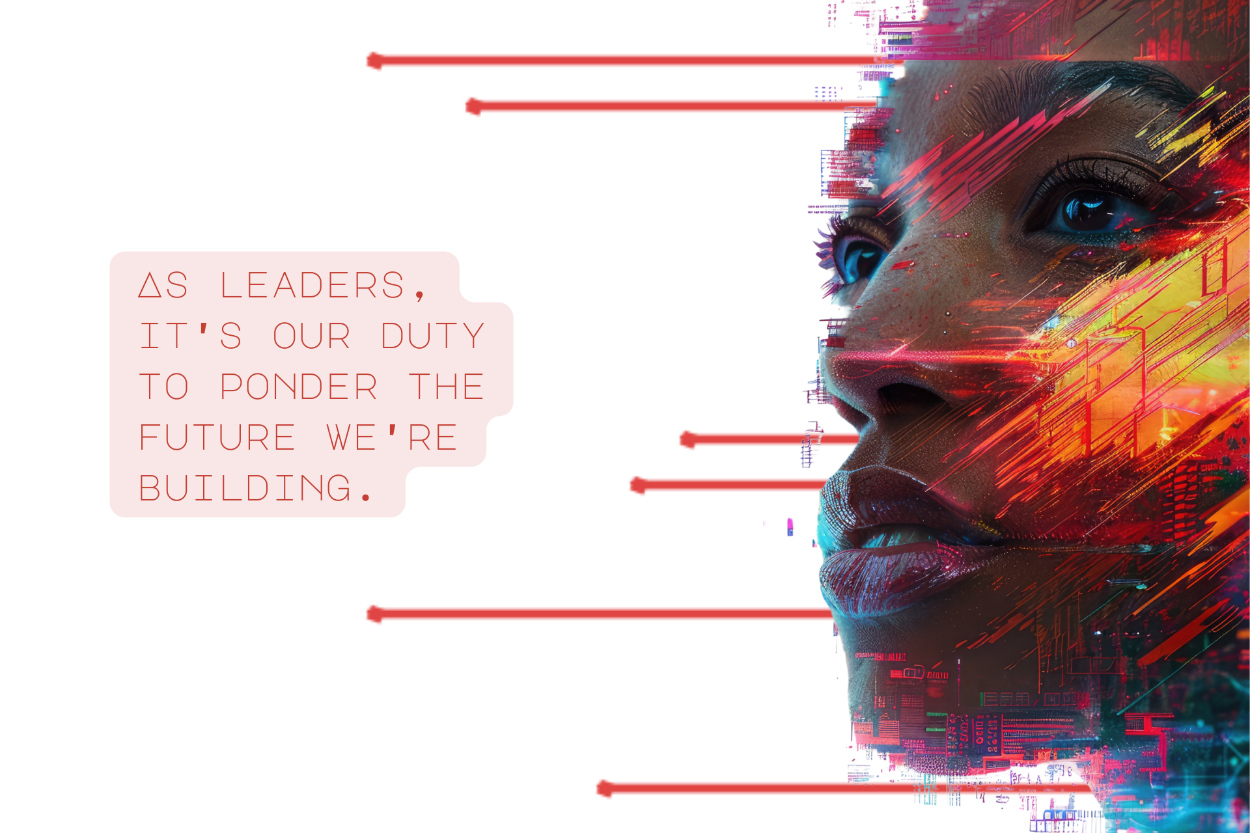This article was originally published in The Interline’s AI Report 2024. To read other opinion pieces, exclusive editorials, and detailed profiles and interviews with key vendors, download the full AI Report 2024 completely free of charge and ungated.
Key Takeaways:
- Balancing Technology and Ethics: CEOs and business leaders must ensure that strategic AI projects balance technological innovation with ethical considerations, such as bias management and transparency, to build trust and align with societal values.
- Accountability and Governance: Implementing clear accountability frameworks and advocating for robust governance in AI development and deployment is essential to address regulatory requirements and maintain public trust.
- Ethical AI for Long-term Success: Prioritising ethical outcomes in AI initiatives not only mitigates potential negative consequences but also strengthens public and stakeholder trust, ensuring the long-term reputation and sustainability of businesses.
Artificial Intelligence (AI) is only getting more deeply integrated into global corporate enterprises over time. As a result, CEOs and business leaders are finding themselves at a new confluence of innovation, efficiency and ethics – and the success of strategic AI projects is set to be measured as much by the careful balance struck between technology and culture as it is by traditional, harder metrics.
As a CEO, you might be accustomed to steering, sponsoring, and supporting technology initiatives where technical prowess and business potential are the focus, but where AI is concerned the ethical considerations are equally important – even if they are not immediately obvious.
To help understand why each of these elements is such an important part of due diligence and leadership, and to grasp how they influence one another, I have assembled a list of five critical but easy-to-miss considerations where technology and ethics need to go hand-in-hand.
1. Bias Versus Morals
While much has been said about data bias, less attention is paid to bias in AI design and development phases. Ethical AI necessitates considering not just the data inputs but also the underlying algorithms and their predisposition towards certain outcomes.
In the AI domain, bias and morality should not be considered the same thing. Bias refers to systematic errors in judgment or decision-making, often stemming from ingrained prejudices or flawed data. However, an ethical AI framework begins with inclusive design principles that consider diverse perspectives and outcomes from the outset. In a typical technology initiative this diversity of input and representation would involve ensuring that stakeholders are able to influence how the technology in question is deployed and used; in an AI project this would also need to incorporate much wider considerations.

In contrast, morality embodies principles of right and wrong, guiding ethical behavior and societal norms.
While bias is generally viewed as detrimental, AI often requires a degree of bias to function effectively. This bias isn’t rooted in prejudice but in prioritizing certain data over others to streamline processes. Without it, AI would struggle to make decisions efficiently or adapt to specific contexts, hindering its utility and efficacy. Therefore, managing bias in AI is essential to ensure its alignment with moral principles while also prioritizing the capabilities and the functionality that will deliver the desired return on investment.
2. Beyond the “Black Box”
AI’s “black box” problem is well-known, but the ethical imperative for transparency goes beyond just making algorithms understandable and their results explainable. It’s about ensuring that stakeholders can comprehend AI decisions, processes, and implications – guaranteeing they align with human values and expectations, and helping to build trust in a class of technologies that many people are predisposed not to trust.
Recent techniques, like Reinforcement Learning with Human Feedback (RLHF) that aligns AI outcomes to human values and preferences, confirm that AI-based systems behave ethically. This means developing AI systems where decisions are in accordance with human ethical considerations and that can be explained in terms that are comprehensible to all stakeholders – not just the technically proficient. Business leaders have a significant role to play here, since securing buy-in from process champions, fellow executives, and end users requires the ability to comprehend and communicate not just the rationale for adopting AI, but the mechanics of the models themselves.
Explainability empowers individuals to challenge or correct erroneous outcomes and promotes fairness and justice. Together, transparency and explainability uphold ethical standards, enabling responsible AI deployment that respects privacy and prioritizes societal well-being. This approach promotes trust, and trust is the bedrock upon which sustainable AI ecosystems will be built.
As leaders, it’s our duty to ponder the future we’re building. AI is and will continue to change how we work, live, and play–all while moving us closer to a vision for productivity. This is both an incredibly broad goal and a bold one, and any transformation on this sort of scale will encounter friction.
Ethical AI practices, then, require a forward-thinking approach that considers the lasting imprint of AI on society. Aiming for solutions that benefit humanity as a whole, rather than transient organizational goals, is crucial for long-term success. And in the fashion industry in particular, the relationship between business success and the price people and planet pay is under heavy scrutiny already.

Ensuring ethical AI involves anticipating and mitigating potential negative consequences, like exacerbating inequality. Proactive measures that business leaders can take include mandating comprehensive risk assessments, playing a part in ongoing monitoring, and installing and reinforcing robust governance frameworks.
4. Accountability in Automation
Automation brings efficiency but also questions of accountability – not just to internal stakeholders but to the wider world and to the apparatus of government and NGOs that are seeking to regulate the risks and the ethics of AI.
As leaders, it will be important to not just remain aware of the evolving regulatory landscape, but also to welcome external structure and scrutiny. Legislations can establish standards for transparency, accountability, and safety in AI development and deployment – providing clear guidelines and helping bridge public trust in a way that can anchor AI technology projects in that wider cultural conversation. Collaborative efforts between policymakers, developers, and ethicists are already progressing, but it will be equally important for industry to part of these discussions and policy frameworks.
In the day-to-day, CEOs must advocate for and implement policies where accountability is not an afterthought but a foundational principle. Ethical AI practices must establish clear accountability frameworks, which involves comprehensible delineation of roles and responsibilities among developers, operators, and stakeholders. This includes implementing feedback loops, robust auditing processes, and avenues for redress in case of unintended consequences.
In an automated world, when errors occur, determining responsibility can become murky; business leaders have the opportunity, today, to stay ahead of government regulation and to remain on the right side of the social evolution by introducing ethical AI practices from the start.
5. Prioritizing Ethical Outcomes
Prioritizing ethical outcomes with AI necessitates deliberate consideration of societal impacts and values throughout the development lifecycle. Ethical AI practices involve actively seeking opportunities where AI can contribute to societal challenges—healthcare, environmental sustainability, and education, to name a few. It’s about coordinating AI initiatives with broader societal needs and ethical outcomes, leveraging technology that will facilitate and accelerate ethical practices.

Why Starting with Ethical Considerations Makes Sense
Harnessing the power of AI in business is quickly becoming table stakes, leaving those who don’t begin initiatives behind. Over the last year, you will no doubt have encountered investors, colleagues, customers, partners and other parties all looking to understand what your AI strategy is.
In spite of that drive for speed, however, ethical considerations must be the guardrails for sound decision making, otherwise today’s exciting AI project risks becoming tomorrow’s customer backlash, fine, or enforcement.
But there is also the in-house cultural side of things to consider. While rolling ahead with AI quickly might seem imperative, involving the right stakeholders in the ethical decision-making process can also enhance employee morale and productivity, promoting a culture of responsibility and. Starting with ethical expertise ensures that AI initiatives are not just technically sound but are also ethically responsible, sustainable, and in-step with corporate and societal values. Prioritizing ethics strengthens public and stakeholder trust, crucial for long-term reputation and customer loyalty.
The future of AI is not just about what technology can do; it’s about what it should do. And as business leaders, we have a historic opportunity to influence both, on behalf of our businesses and on behalf of the people who contribute to and engage with them.
